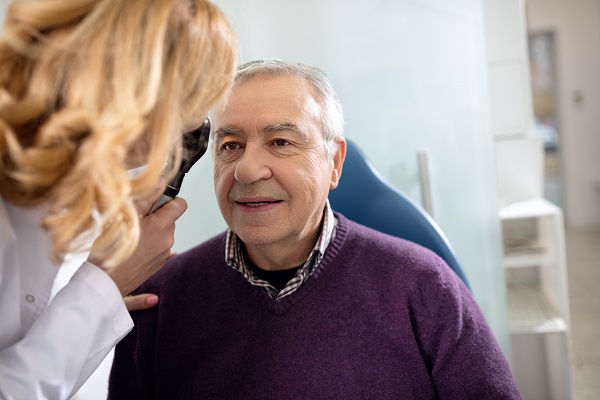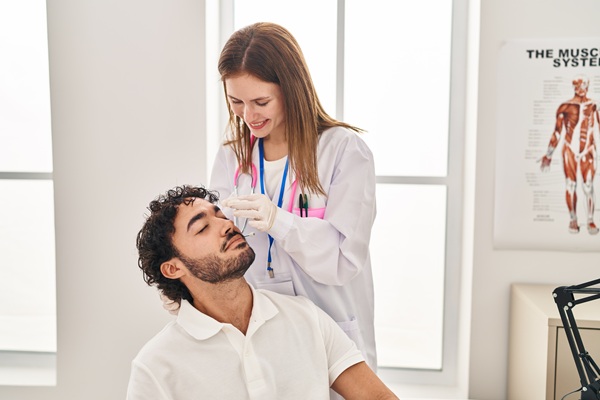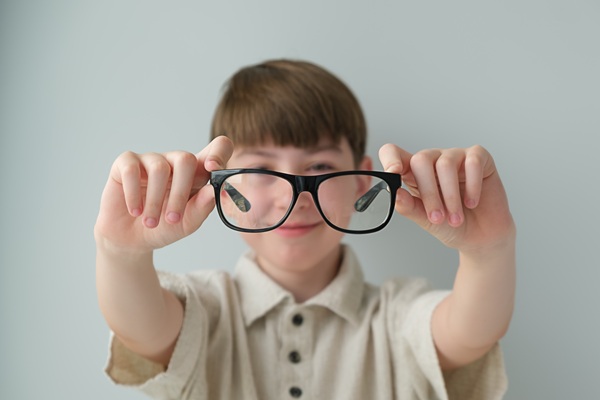4 Questions to Ask Your Eye Doctor During the Consultation

Going to the eye doctor on a regular basis is important to maintain good eye health. Eye doctors can manage, diagnose and treat any eye conditions that may arise. They can also ensure that the patient maintains good eye health throughout their life.
When preparing to visit an eye doctor, it is a good idea to come up with a few questions to ask. This will allow the patient to get the full scope on their appointment and their eye health. In this article, we highlight a few questions that are worth asking!
4 questions to ask the eye doctor during a consultation
Outlined below are a few important questions that a patient should consider asking their eye doctor during a consultation.
1. What is the best way to monitor and maintain eye health?
Asking an eye doctor about ways to monitor and maintain eye health is a great idea. It is one of the most commonly asked questions, as well as an important one. Knowing how to maintain and monitor good eye health can help patients long-term.
Most eye doctors recommend wearing protective sunglasses when exposed to sunlight. Choosing ones that have UV protection can help shield the eyes from the exposure. Other things include eating a diet rich in Vitamin A and C, as both of these nutrients keep the eyes healthy.
2. Are glasses or contacts better?
Talking with an eye doctor about whether or not glasses or contacts are better is another important topic to bring up. Each patient is different, meaning the answer may vary. Sometimes, contacts may be more beneficial for the patient, while other times glasses could be a better option.
Ultimately, the eye doctor can help the patient determine which option is better for them. It is likely that the patient will have to undergo a few types of evaluations to help make the decision. In some instances, the patient may try both out to see which is more suitable to their needs.
3. Who is at risk of developing an eye disease?
Eye diseases are more common in elderly people. As patients age, they are more likely to develop an eye condition, but for the most part, these are minor. Other factors include being overweight or not living a healthy lifestyle. Talking with an eye doctor about patient-specific risks is a good idea, as they can provide an accurate determination.
4. What are the signs of eye disease?
It is important to ask an eye doctor to share a few signs of eye diseases. Some may include difficulty keeping the eyes open, pain or a burning sensation, excess fluid around the eyes or even headaches.
Get started with an eye doctor today!
There are plenty of great reasons to consult with an eye doctor. Whether you have questions or concerns about the health of your eyes, let us know. Our team can help you! Give us a call or stop by our office today.
Request an appointment here: https://www.texasoptical.net or call Texas Optical at (214) 771-7333 for an appointment in our Dallas office.
Check out what others are saying about our services on Yelp: Read our Yelp reviews.
Recent Posts
Dry eye treatment is important when occasional irritation becomes ongoing discomfort that interferes with daily activities. Many individuals experience dryness, burning, or a gritty feeling in the eyes from time to time. However, when symptoms start to affect reading, screen use, or time outdoors, a structured approach to diagnosis and care helps protect comfort and…
Myopia control focuses on slowing the progression of nearsightedness, primarily in children and teens, to help protect long-term eye health and day-to-day vision. Myopia occurs when the eye grows too long or the cornea curves too steeply, which causes distant objects to appear blurry. As the prescription increases, the risk of future eye disease also…
Retinal photography gives optometrists a detailed view of the back of the eye. When done regularly, they are often able to spot early signs of disease before symptoms affect daily vision. This advanced imaging tool helps create a clear record of eye health over time and supports smarter decisions about treatment and follow-up care. Learning…
Red, itchy eyes can affect your everyday comfort and reduce overall well-being. It is important to seek effective vision care from the first sign of irritation. Proper attention to symptoms, underlying causes, and healthy habits ensures stronger long-term eye health and greater day-to-day clarity. Redness and itchiness often stem from several common triggers. These include: Allergic…


